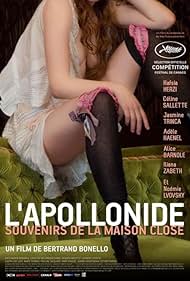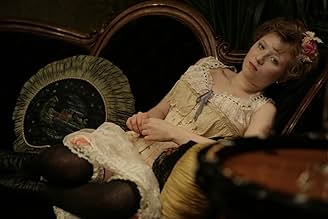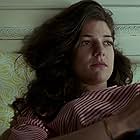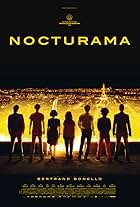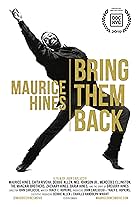At an elegant Parisian bordello at the dawn of the 20th century exists a cloistered world of pleasure, pain, hope, rivalries--and, most of all, slavery.At an elegant Parisian bordello at the dawn of the 20th century exists a cloistered world of pleasure, pain, hope, rivalries--and, most of all, slavery.At an elegant Parisian bordello at the dawn of the 20th century exists a cloistered world of pleasure, pain, hope, rivalries--and, most of all, slavery.
- Awards
- 6 wins & 15 nominations
Noémie Lvovsky
- Marie-France
- (as Noemie Lvovsky)
Céline Sallette
- Clotilde
- (as Celine Sallette)
Adèle Haenel
- Léa
- (as Adele Haenel)
Judith Lou Lévy
- Une prostituée
- (as Judith Lou Levy)
Maia Sandoz
- Une prostituée
- (as Maïa Sandoz)
Pierre Léon
- Un client
- (as Pierre Leon)
- Director
- Writer
- All cast & crew
- Production, box office & more at IMDbPro
Storyline
Did you know
- TriviaThere's a short epilogue at the end with a view of modern Paris streets, traffic and some streetwalkers, one of whom is a 'twin' to a brothel prostitute. Bertrand Bonello said that Thierry Frémaux, the artistic director of the Cannes Film Festival, asked him to cut it, though the film still made it into the main competition after Bonello refused. "A lot of people thought I was glorifying the brothels of the time, holding them up as an ideal against today's prostitution, but it was actually much simpler than that. I felt I couldn't end inside the brothel but needed a contrast. I wanted to burst this bubble I had created for two hours, to wake the viewer up, and that wake-up is the return to the present", Bonello said.
- GoofsA character says he's been to the inauguration ceremony of the Paris Metro. After that there is a scene where we hear fireworks for Bastille Day (14 July). The opening of the Paris Metro (Line 1) was on 19 July 1900, five days after Bastille Day.
- Crazy creditsDedication before end credits: "For Charlotte"
- ConnectionsFeatured in Ebert Presents: At the Movies: Episode #2.23 (2011)
- SoundtracksPlaisir d'Amour
Written by Jean-Pierre Claris de Florian and Jean-Paul-Égide Martini (as Jean Paul Égide Martini)
Performed by Eloïse Decazes
Piano by Bertrand Bonello
Featured review
Nicely acted and photographed, this could however easily be very depressing - not only in the unvarnished depiction of life in a Paris brothel 100 years ago but in the clear message that things aren't too different today.
Debt, disease and the possibility of shocking violence are ever-present, although conversations among the women about jobs that they have done beforehand (e.g. The "industrial injury" side of being a launderess) suggest that being a prostitute wasn't necessarily the *worst* option available.
Sobering stuff, but the camaraderie looks real and softens the tone somewhat. Recommended.
Debt, disease and the possibility of shocking violence are ever-present, although conversations among the women about jobs that they have done beforehand (e.g. The "industrial injury" side of being a launderess) suggest that being a prostitute wasn't necessarily the *worst* option available.
Sobering stuff, but the camaraderie looks real and softens the tone somewhat. Recommended.
- derek-duerden
- Jan 26, 2022
- Permalink
- How long is House of Tolerance?Powered by Alexa
Details
Box office
- Budget
- €4,000,000 (estimated)
- Gross US & Canada
- $19,327
- Opening weekend US & Canada
- $4,766
- Nov 27, 2011
- Gross worldwide
- $1,389,920
- Runtime2 hours 2 minutes
- Color
- Sound mix
- Aspect ratio
- 1.85 : 1
Contribute to this page
Suggest an edit or add missing content

